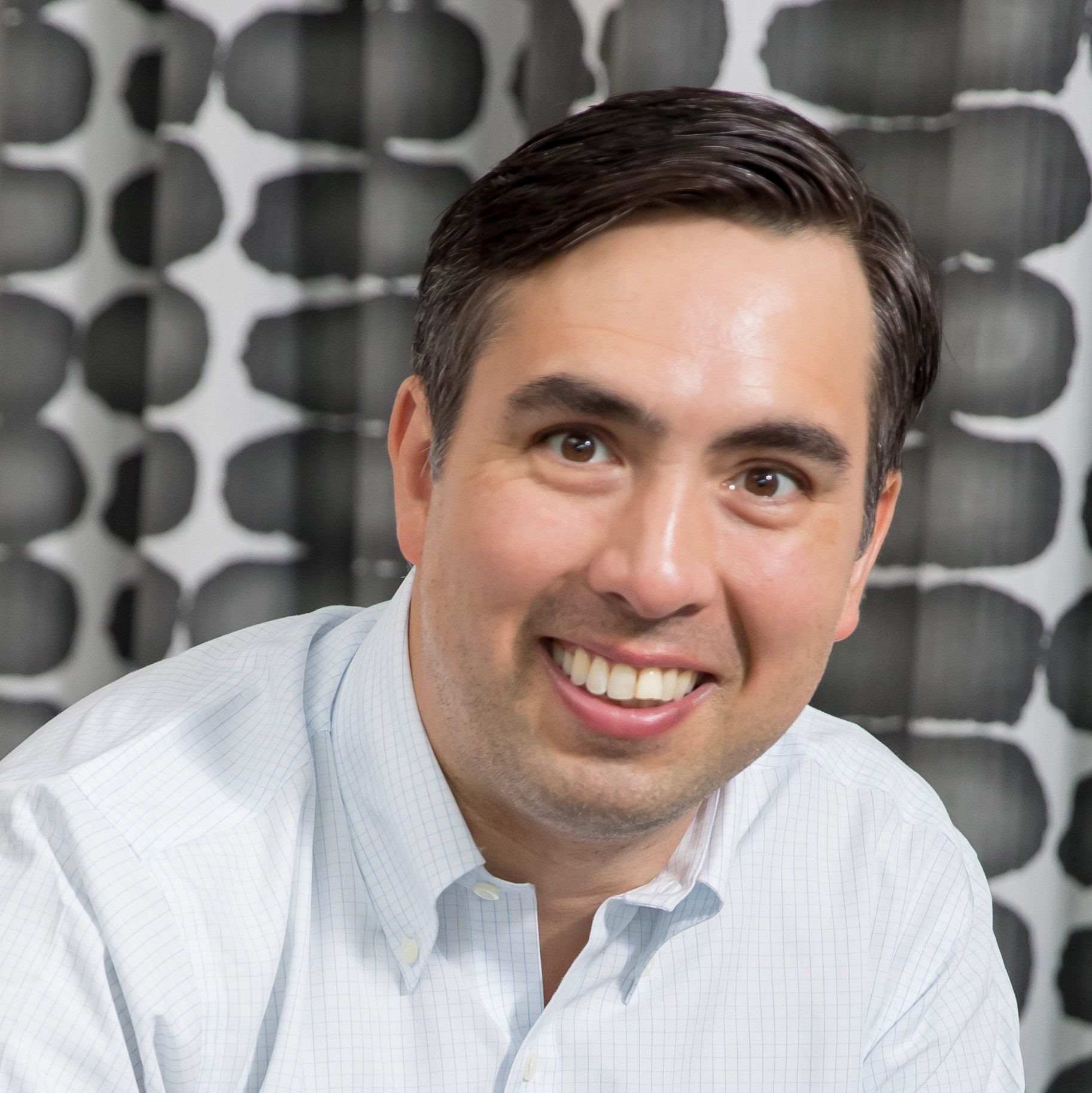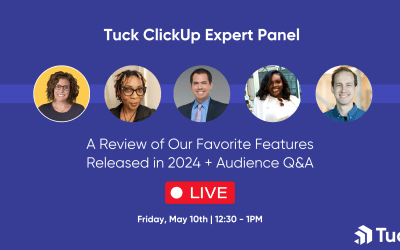
Summary: After ranking #356 on the Inc 5000 list, Tuck team members Alex Tuck and Andrew Guidarelli attended the Inc 5000 Conference and Gala in San Antonio, TX. We got to meet hundreds of our fellow awardees and listen to talks by a number of reknown business leaders. Deepak Chopra, the physician, endocrinologist, and alternative medicine guru, was one of the featured speakers. He spoke with Inc Editor-in-Chief Scott Omelianuk about how entrepreneurs can live healthier lives while building a successful business. Our biggest takeaways were about the intangible factors that play into building a healthy life alongside a resilient business.
Where’s the money going to come from?
Chopra started his talk with an anecdote about his initial encounter with Maharishi Mahesh Yogi, the creator of Transcendental Meditation (and spiritual guru to the Beatles). Deepak ran into the Maharishi at a conference about integrative medicine, and since they were among a small number of South Asians in attendance, the two hit it off. The Maharishi encouraged Deepak (then Dr. Chopra) to study with him and publish a book, which was a far departure from practicing medicine in the US. While this invitation lead to Chopra’s career in alternative medicine, clearing the initial decision with his family was difficult.
His wife asked a very reasonable question: “Where’s the money going to come from?” At which point, the Maharishi replied “From wherever it is at the moment.”
While we all laughed a lot at that exchange, Deepak’s wife had a great point. Starting a business is always a risky venture, and when your product or service is especially novel (or intangible), there’s even less room for error. Putting a career in medicine on hold to study abroad under a guru placed all the Chopras in a difficult spot.
As a project management firm, we help clients turn a business idea into reality. We deal with the nuts and bolts: business processes, technology roadmaps, project plans, and ClickUp workspaces. We even delve into some intangibles like interviewing candidates for the team or coaching up employees on Agile methodology. But we can’t dream for an entrepreneur, enhance their awareness, or create instances of “synchronicity.” And those are the things that make a business unique – that’s where the money comes from.
Dreams
Chopra reminded us that entrepreneurs differentiate ourselves by taking active steps to turn a notional concept into an actual thing through intentional and concrete actions. Everyone has great ideas, but entrepreneurs are the ones who translate those ideas to products and services. And Inc 5000 awardees are among the best translators out there.
In his case, Chopra wrote a mass-market book about integrative medicine. After every editor rejected it, he turned his dream into reality by self-publishing it. Then he convinced the Harvard Co-op to sell it, at which point a student passed along a copy to his mother, a literary agent. And thus, Quantum Healing found a publisher and Chopra had his first book deal. A skeptical physician’s dream launched a health and wellness empire.
Awareness
Entrepreneurship requires awareness, both of the world around us and of ourselves. After all, successful business have to address a genuine need. And the energy required to bring those businesses to life requires a genuine enthusiasm by the entrepreneur. When picking a vocation, Chopra told us to “Do something, whatever you do, because somewhere in the back of your mind, you want to be happy.” He gave us four questions to reflect upon as an exercise in self-awareness:
- Who am I?
- What do I want?
- What’s my purpose?
- What am I grateful for?
While Chopra uses them as a spiritual exercise, they’re quite relevant for entrepreneurs as we look for the next project. Moreover, Chopra advised us to embrace the uncertainties of the world around us. As he put it, “It’s in the proliferation of uncertainty that creativity occurs.” Chopra launched his career in wellness after his medical career convinced him that Western medicine did not hold a complete answer for sustaining a healthy life. He warned us “If you’re certain, you’re like an algorithm…[that] tells you what the prevailing opinion is.”
Synchronicity
Synchronicity comes up often in Chopra’s work, and he published a book on the subject. For the uninitiated among his Inc 5000 audience, he defined it as “a meaningful coincidence”: the intersection between recognizing an opportunity and the observer’s level of preparedness. As he put it, life “invites you to step into who you were created to be, offering your unique skills to others in ways only you can.”
Entrepreneurs who acknowledge their “luck” with a venture are really acknowledging the presence of synchronicity: an intersection between their creative vision and a situation that demands it.
Where project managers fit in
It’s up to the entrepreneur to dream up the business idea and to recognize an opportunity for it. Executing on that idea isn’t everyone’s cup of tea, but Chopra pointed out that the entrepreneur doesn’t necessarily have to be the expert: you just have to find a teammate who is.
An experienced project manager can be that teammate: the person who turns your ideas into a concise plan of action, recruits talent for each step in that plan, and then drives the plan forward to successful completion. And fortunately for Tuck, there are folks who dream of doing just that: our project management consultants. If you have a vision and recognize an opportunity, let’s talk about how we can help you turn it into a reality. As Deepak said, “The best way to know the future is to create it.”

Andrew Guidarelli
Strategy & Partnerships
As Tuck’s Strategy and Partnerships manager, Andrew builds and nurtures relationships with the vendors and teammates that help us solve problems for clients. He’s also responsible for Sales operations and business capture. Outside of work, Andrew enjoys jogging (not running ![]() ) and catching live music acts at one of DC’s myriad venues.
) and catching live music acts at one of DC’s myriad venues.


